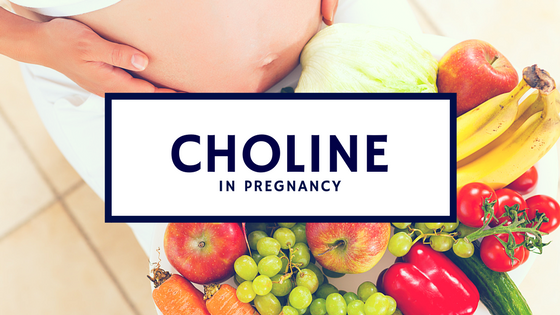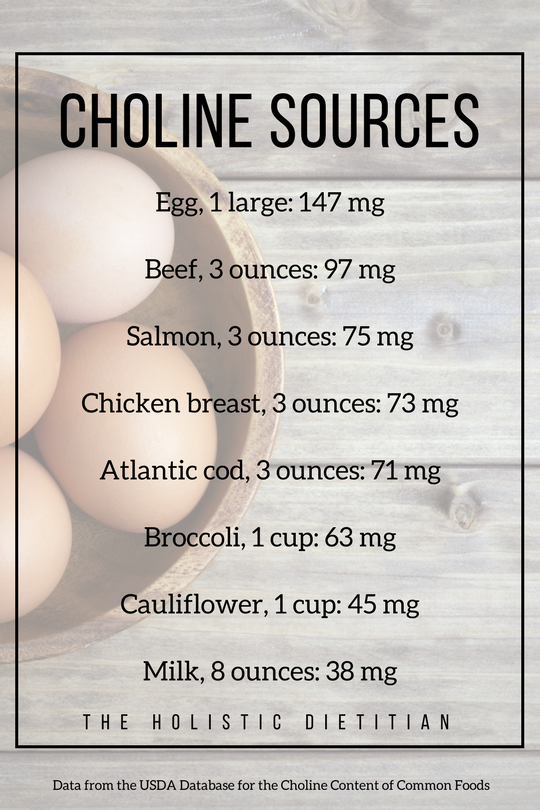
If you’ve been looking up nutrition during pregnancy at all then you’ve likely read about the importance of vitamin D, protein, calcium, and folate. But there is one nutrient that shies away from the spotlight and is not typically found in prenatal supplements – yet, it is estimated that 90% of Americans do not get enough of this nutrient: choline. (1)
What does it do??

Choline is an essential nutrient that is involved in all cells of the body. Although the body makes small amounts of choline, many individuals have compromised ability to create it, topped with the fact that the needs needs in pregnancy substantially increase. Therefore, it’s a crucial nutrient that we need to ensure we’re getting in through our diet.
Due to the fact that choline is used to make phosphatidylcholine, a component of all cell membranes, the roles of this nutrient is pretty far–reaching. It’s involved in normal metabolism and transport of lipids, methylation reactions, and synthesis of neurotransmitter. Because of its role in methylation, it also plays a role in DNA creation, nerve signaling, and detoxification. (2)
Healthy Baby
During pregnancy, choline supports optimal brain development, influences cognitive function in later life, and provides protection against birth defects such as spina bifida. (3) While the body’s ability to synthesize choline increases during pregnancy, the demand is so high that mom’s stores are often depleted. A study in 2014 demonstrated the high demand during pregnancy when measurements of choline in amniotic fluid revealed to be ten times greater than that present in maternal blood. (4)

What’s even more interesting about choline is its relationship with folate. Folate is another critical nutrient for pregnancy in prevention of neural tube defects. Choline, folate, and B vitamins all work together, keeping one another in balance. (5) Needs during lactation also increase because of the presence of choline in breast milk, which further supports the newborns growth and development.
Recommended Intake & Sources
During pregnancy, recommended intake for choline is 450 mg per day and 550 mg per day if you’re breastfeeding. (6)
It’s considerably easy to get your daily intake through diet alone – most times supplements are not necessary. For instance, eggs are one of the top food sources of choline, providing about 125 mg, or roughly a quarter of the recommended daily amount. Other food sources include liver, beef, wild-caught salmon, cauliflower, and broccoli. Spinach and beets can support choline needs indirectly, by sparing choline in the methylation process. (7)
Eating a nutrient-dense varied food diet will help ensure you’re reaching your recommended intake. However, vegetarians and vegan who do not consume meat, dairy, or eggs, will be at a higher risk for deficiency. While choline is considered a safe nutrient, high doses can be dangerous. It is recommended not to exceed 3,500 mg per day for adults over 19 years of age. (7)
Be the first to comment